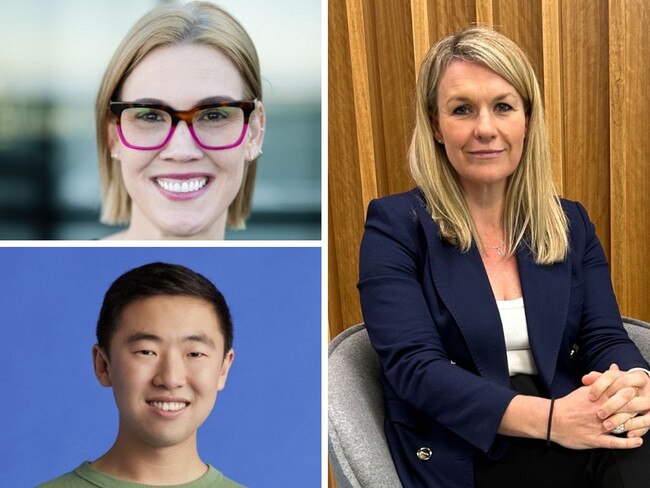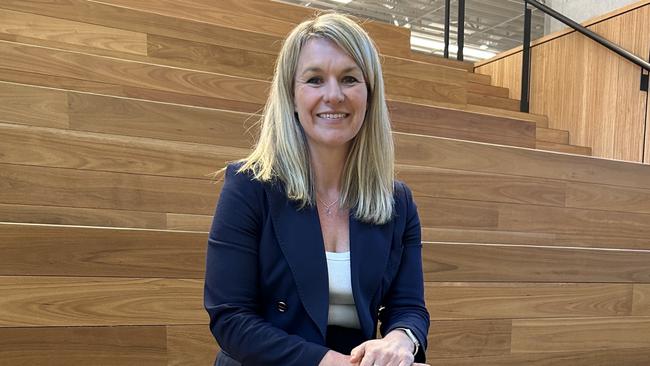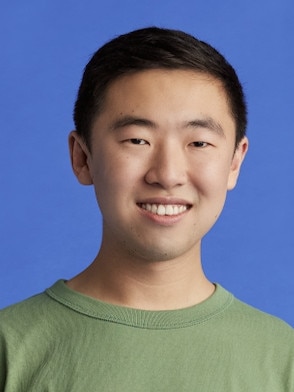Australia’s AI chiefs: Meet the artificial intelligence managers at Deloitte, Canva, NAB
Meet the top local executives tasked with overhauling their multi-billion dollar companies in the age of AI.

As Australia races to implement artificial intelligence across all industries, companies are searching high and low for skilled talent to lead the race.
Some AI managers have been appointed over the last six months, some are making lateral shifts, and others have been in the space for more than a decade.
The latter is the case for Kellie Nuttall, Deloitte Australia’s AI Institute Leader, whose role is to help organisations develop strategies to leverage AI and integrate it and other cognitive technologies into business and government.
She joined Deloitte as national leader of AI and Analytics in 2014 after five years teaching advanced analytics and just under four years running the centre for excellence in data analytics at the Department of Transport in Brisbane.
The Australian has asked those tasked with managing AI at their company the same three questions: how do you explain artificial intelligence to your colleagues; How has AI impacted your company and your day-to-day role; and what’s your biggest AI prediction in 2024.
To the first, Ms Nuttall said she explains the technology as performing functions that would typically require human intelligence.
“Think about any human-like skill that an algorithm can essentially do, whether that is analysing information or making sense of the world through visual imagery,” she said. “At the end of the day, AI is looking at historical data sets, analysing patterns and learning from them. And then predicting when a new event happens, what is the right outcome.”

How AI has changed Deloitte as a company is through its own platform called Deloitte Generative AI Platform, which staff have now begun to use for digital research, Ms Nuttall said.
As for her predictions for 2024, she said companies have passed the trial and experimentation phase of AI and are now looking to implement it into their business. “A lot of it wasn’t linked to actual business outcomes, productivity or customer experience,” she said.
This year would be one where business leaders begin to ask “where is the value in AI” and look at ways they can “actually apply it to areas that are actually impactful in their business or to realise actual benefits”.
At banking major National Australia Bank, Jessica Gleeson has the role of data strategy execution executive. It’s a role she took on in July last year, after spending the past 13 years across in digital banking at Suncorp, Westpac and Commonwealth Bank.
Ms Gleeson was hired to establish and run a new generative AI program. “I run a team of project people, and we’ve got squads experimenting in this space as we speak,” she said.

“The way that we’re thinking about AI at NAB is how it can be used to leverage some of the unstructured data we have to deliver customer benefits.”
This is how Ms Gleeson explains AI to her colleagues: “It’s become a lot easier by just saying, ‘I’m sure you’ve all been utilising or had experience with ChatGPT in your real life, right now we’re looking at how we can bring that to (work)’.”
In her role, she “lives and breathes AI” and one of the primary focuses outside of integration was developing a pipeline of AI talent,” she said. “Right now we’re starting to see new roles emerge and a lot of our data science capability is shifting into that prompt engineering space.”
Ms Gleeson’s prediction for AI is that “come this time next year, it won’t be a matter of what we should do with AI, but why aren’t we doing it yet?”
Over at Australian design darling Canva, Danny Wu leads the charge as head of AI.
A self-taught programmer, Mr Wu began at the business seven years ago as a product manager for Canva’s search, recommendations and data science products.
“That was some of our earliest use of machine learning to deliver better search results,” he said.
He left for a brief stint at Airtasker, later returning in 2018 and by November 2022 took charge of AI.

Mr Wu describes AI to colleagues as “as technology that lets you ask open-ended requests, and get open-ended responses”.
“It’s quite different to how computing has worked over the past few decades: instead of reading search results others have created, you can get a specific answer. Instead of finding the best stock photo that someone captured before, you can have AI create it for you.”
As for how the technology impacts his day-to-day role, he said it’s helping Canva grow. “The recent acceleration of generative AI has unlocked so many more ways for how we can make design even easier for our 170 million monthly users,” he said.
Mr Wu’s prediction for 2024 is that AI will evolve beyond living within applications as a “point solution”.
“I believe we’ll increasingly see AI integrated at a higher level: where its capabilities transcend individual apps and features, and create new integrated and seamless experiences that are substantially more capable and useful than today.”







To join the conversation, please log in. Don't have an account? Register
Join the conversation, you are commenting as Logout